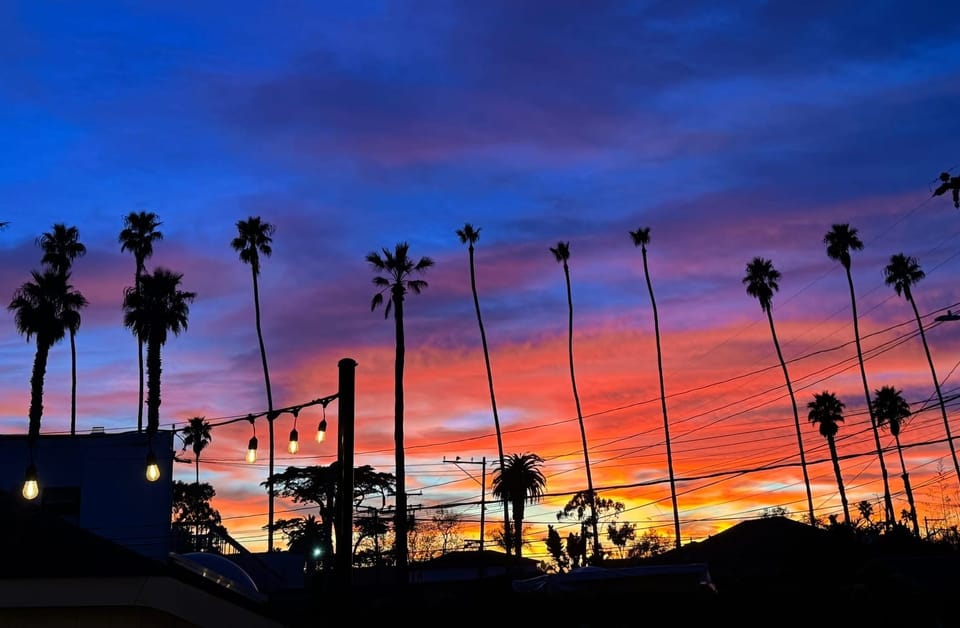Coming soon

Hi friends and family,
You may have noticed that I've been a bit radio silent about what's been happening in/to this country since the election; but, I can assure you that I have not been sticking my head in the sand. Well, maybe I did spend a few weeks after the election licking my wounds, screaming into the void, and wondering just how hard it might be to get Italian citizenship through my great-grandfather. Since then, I’ve mostly been consumed with reading a wide range of angles related to what is happening in our government and country right now—looking for themes that emerge or tentative conclusions that might be drawn to help make some sense of it all. No easy task with the breakneck speed at which new chaos drops every day.
A couple of weeks ago, I sat down to write what I intended to be a relatively succinct email to share with concerned friends and family, outlining my thoughts on how America might weather this on-going assault on our democracy. Considering the profound void left by our news and social media's utter failure in this moment–who have been accomplice to a lot of spilt ink over the past decade trying to convince us not to believe our own lying eyes–I thought I might be able to add a helpful voice. And, well, it turns out that there’s a lot that has been floating around in my head.
It is probably the academic in me, but I didn't feel like I could just jump into a discussion of reasons for alarm and reasons for optimism, without first attempting to provide a reasonable picture of the lay of the land. I also returned to my scholarly roots, re-immersing myself in the literature on democratic backsliding from a comparative perspective, in the hope of gleaning insights about how this is all playing out here and where it might go. Basically, what does a historical and comparative perspective tell us about how and when fascist attempts to overthrow a democracy succeed or fail?
As part of this endeavor, I’ve also been focused on identifying the aspects of the ongoing coup attempt that differ from other historical and current cases of autocratic attacks on a democracy. Again, in the hope that this might help tell us something meaningful about the likely success of the current attempt to destroy American democracy.
As I started writing, what was going to be one email, morphed into a plan to write two or possibly even three emails. In the first email, my goal was to provide a lay of the land, through a comparative lens, as a framework for thinking through America’s democratic resilience (or lack thereof) in the face of this current fascist attack–which promptly mutated into an 11-page, single-spaced, 11-pt. font behemoth. Which I then sent out to members of my family, asking for their feedback before sharing it more broadly.
And... as of one week later, I am pretty confident that, of my family (ie, the people who are required to love me), the only person who has read it in its entirety is my uncle, a retired Federal Court of Appeals circuit judge, whose long and storied career well-equipped him for reading unnecessarily long, unwieldy pieces of writing. (Thanks, Steve!)
Admittedly, as a professor of political communication, I should have recognized sooner that unleashing this beast of an email into unsuspecting people's inboxes may not be the most practical nor effective communication plan. So, I changed directions and created this... newsletter. Yes, I cringed a little bit just now writing that. Not because newsletters are cringe–I can safely estimate that I currently subscribe to two, maybe even three dozen of them. I just never really thought of myself as a newsletter kinda' academic. But, I figure that this approach allows friends and family and whoever else might be interested (welcome!) to opt-in to read my thoughts and analysis in (I promise) smaller, more digestible chunks.
The current plan for this limited-series newsletter is 3-part.
- Provide a lay of the land, through a comparative and historical lens, to illuminate America’s democratic resilience (or lack thereof) in the face of the current fascist attack.
- Apply these lessons to highlight both reasons for concern and reasons for optimism. (Yes, there are actual reasons for optimism, which I know can be difficult to believe.)
- Because a lot of us feel very scared and disempowered right now, and either not sure what we can individually do and/or worried that whatever we are doing is not enough, the final chapter of this newsletter will speak to some of the ways we can contribute to the fight to preserve our democracy.
If this sounds useful or interesting to you, you can sign-up for my (cringe) newsletter: Thoughts in Red Ink. I am still in the process of getting it all up and running, but I'll be sending out some takes in short order trying to help make sense of all this madness. Lfg.